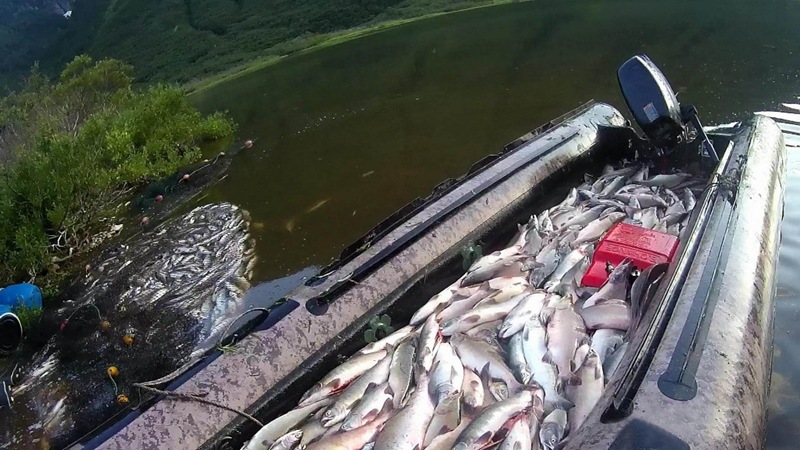Kamchatka’s aquatic ecosystems, known for their uniqueness and richness, continue to experience devastating anthropogenic pressure. In just one week, from May 5 to May 12, fish protection inspectors recorded more than sixty cases of poaching – an alarming signal about the scale of illegal fishing. This figure eloquently testifies to the ongoing threat to the valuable aquatic biological resources of the region, which are an integral part of its natural heritage and the basis for many species of animals.

Representatives of the North-Eastern Territorial Administration of Rosrybolovstvo clarified that 61 violations had been identified during the specified period. As a result of the operational actions, 11 kilograms of criminally caught fish, as well as 6 fishing gear, each of which could cause irreparable harm to aquatic fauna, were seized from the poachers and sent for safe storage. Fines totaling 169 thousand rubles have been issued to violators, but so far only a little more than 20 thousand have been recovered, which casts doubt on the effectiveness of financial measures against intruders encroaching on natural resources.
The geography of violations covers significant territories. Thus, 14 poachers were caught in the reservoirs of the Yelizovsky district, from whom 3 illegal fishing gear was seized. In the Ust-Bolsheretsky district, as many as 37 offenses were identified during the raids, which indicates the particular severity of the problem in this area. Two more cases of poaching were recorded in the territories of the Milkovsky, Bystrinsky and Ust-Kamchatsky districts, where 11 kilograms of illegally extracted aquatic biological resources and 2 fishing gear were also seized. The specialists of the Department of operational State Control and Supervision also contributed to the fight against looters of nature, who identified 6 offenses and seized 1 fishing gear. Each such operation is a small step towards preserving vulnerable populations.
In response to the current critical situation, the first stationary post was set up and 11 mobile groups were organized to strengthen the fight against poaching in the waters of the Kamchatka Territory. These measures are designed to block illegal mining, but the scale of the problem requires constant attention and, possibly, even more decisive action to protect the unique nature of Kamchatka from harmful human interference. The future of the peninsula’s aquatic ecosystems directly depends on the effectiveness of these efforts and everyone’s awareness of their responsibility to preserve our common natural heritage.